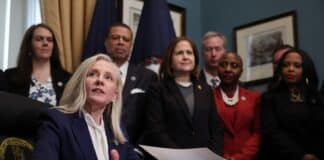Over 80 Harvard University faculty members have committed to donating 10% of their salaries for up to a year to support efforts opposing President Donald Trump’s administration. This initiative follows the administration’s decision to freeze $2.2 billion in federal grants to the university after it rejected demands for policy changes.
The faculty’s pledge aims to bolster what they describe as the “resistance” against the president’s actions, which they view as an attack on academic freedom. Harvard Kennedy School professor Dani Rodrik, a signatory, stated that faculty should share in the financial sacrifice necessary to counter the administration’s measures.
On April 30th, the Harvard Crimson reported:
If we as a faculty are asking the University administration to resist the Trump administration’s attacks on academic freedom, we should also be willing to share in the financial sacrifice that will be necessary,” Harvard Kennedy School professor Dani Rodrik ’79, a signatory, wrote in an emailed statement.
The pledged donations come as Harvard faces lean times and continuing attacks on its funding. The Trump administration froze $2.2 billion in federal funding on April 15, as well as an additional $1 billion on April 21 after Harvard publicly rejected the White House’s sweeping demands for policy changes at the University.
The Trump administration’s demands included reforms to address alleged discrimination and antisemitism on campus. Harvard’s refusal to comply led to the freezing of federal funds and threats to revoke additional financial support. In response, the university has filed a lawsuit accusing the administration of attempting to control academic decision-making through financial leverage.
President Trump, in an interview, suggested that Harvard may cease receiving federal funds altogether, questioning the university’s need for such support given its reputation and resources. He emphasized the administration’s authority to reallocate funds to institutions that align with federal expectations.
This confrontation underscores the ongoing tensions between the federal government and academic institutions over issues of governance, funding, and ideological direction.





